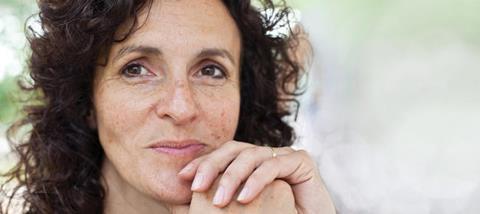
Where did you start with this issue?
I grew up in a Christian family in the Brethren Church, where there were defined roles for men and women. Men made decisions and women made the tea.
As I grew up I really wrestled with that. I swung between thinking, ‘If that’s what God wants, then I don’t want anything to do with God’ and ‘If that’s what God wants, I’ll knuckle down and get on with it’.
Just before I got married, the vicar of our church and his wife led a series of studies on what the Bible says about men and women. That’s when my view changed. I realised that there are different ways of reading the Bible on this issue, and I came to [the] egalitarian viewpoint that God made men and women equal.
How have you applied your views within the context of your own marriage and family life?
Very early on in our marriage we decided we’d do things equally. That meant each of us doing our own ironing because neither of us particularly enjoys it. When my husband, Johnny, and I had children, we job-shared and shared parenting.
What about the place of gender roles in raising children?
I don’t think it’s possible to bring up children gender-neutral, but it’s important to recognise the way that society and other people try to mould children into particular types of boys or girls.
Children are quick to pick up on what they ought to be like and say, ‘I can’t do that because I’m a boy’ or ‘I can’t do this because I’m a girl’. It’s good to question those constraints and introduce children to a wide range of things, allowing them to develop according to their personalities.
What do you think of Christian feminism?
I’m quite happy to call myself a Christian and a feminist. I think feminism is about recognising the full equality of women and men, and particularly addressing the things that hold women back. I think it’s completely compatible. But I recognise that both those words carry a lot of baggage.
Do men suffer from inequality too?
Yes; 75% of those who commit suicide are male. That highlights real issues around male mental health and predominant forms of masculinity, which discourage men from talking about their feelings.
What’s the next step for the Church in addressing gender inequality?
Christians should be at the forefront of liberating men and women from rigid stereotypes because God made us as unique people, with a diverse range of gifts and personalities. He made men and women to share in the task of developing creation. Roles in the Church should be allocated according to people’s gifts, not their gender.
We need to be intentional about addressing inequality and think about what the barriers are to men or women participating in church. Some women are put off church because of the lack of opportunities for them.
Jenny Baker has been an advocate and activist for the equality of men and women for many years. She is a founder of the Sophia Network, a host of the Gathering of Women Leaders in London and has an MSc in gender studies. Equals: Enjoying Gender Equality in All Areas of Life (SPCK) is out now


























